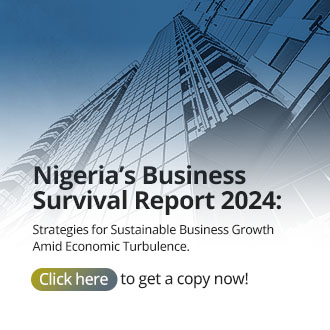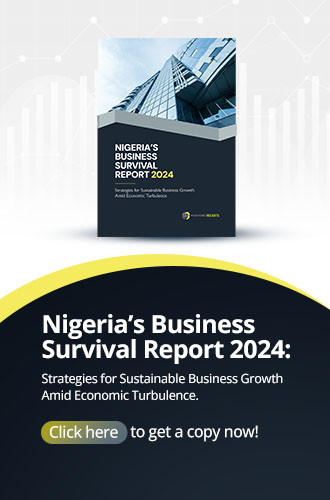2022 saw the African continent grapple with different forms of challenges, changes, and tumultuous activities, here is a breakdown of major events.

2022 saw the African continent grapple with different forms of challenges, changes, and tumultuous activities. From economic expansion and contraction to social unrest, war and conflict coupled with climate change and food insecurity. Mustard Insights has documented some of these issues through the year and we are glad to give you a wrap of the activities that occurred on the continent.
Tech
In Tech, African start-ups; Paystack and Flutterwave reached unicorn status in 2022, meaning these companies are now worth over US$1 billion in valuation without being on the stock market.
The number of software developers in Africa shot up to 716,000 in 2022, a 3.8% increase when compared to the figures in 2020. The figures saw that 85% of developers in the region are male, while 15% are female.
Nigeria also recorded the third largest number of developers in Africa, with 89,000 developers spread across 481 tech companies operating in and out of the country as of September 2022. Of this number, 19,334 work in start-ups in Nigeria, with companies like RenMoney, CowryWise and TeamApt (Monnify) taking the lead in employment.
Equality in the tech ecosystem is still non-existent as Briter's analysis saw that only 3% of the $1.7 billion of funding that has been raised in Africa went to female founded fintech start-ups, while 76% of that number went to male-led start-ups. Olugbenga Agboola and Iyinoluwa Aboyej’s, Flutterwave emerged as the male led company leading the in terms of venture capital funding ($250 million). While Fara Ashiru Jituboh founder of Okra got the largest venture capital funding by a female-led African start up in 2022 with $3.5million dollars.
MNT-Halan, an Egypt-based fintech company operating on the premise of digitizing traditional banking and cash-based markets through tech and data-driven solutions, securitized $150 million in its loan book in the first issuance of a US$600M program with Commercial International Bank (CIB), making it the company with the largest funds raised in Africa.
2022 also saw Nigeria emerge as is the most obsessed crypto country in the world besting countries like the United States of America and the United Kingdom to the punch. It was also a tumultuous year for cryptocurrencies, which have been adopted as an investment vehicle for many young Africans. The premier bitcoin fell from an April valuation of nearly US$47,000/BTC to its present valuation of about USS$16,500/BTC, a precipitous drop.
It was not all smooth sailing for tech though. According to the tracking website, layoffs.fyi, tech companies, including many in Africa, carried out a rash of layoffs as global economic struggles may have led to downsizing across the industry.
Engineering
Engineering and technological advancements are often the quickest route a civilization can take towards progress and development. Multiple engineering projects were slated for completion in 2022 and the early months of 2023, in areas from trade to energy to arts and culture. However, African countries continue to struggle with delays with construction, and postponement of commissioning due dates.
In the areas of trade, Nigeria’s construction of the Lekki Deep Sea Port will give Africa its first, allowing major vessels such as Panamax and Neopanamax-model ships to dock in the continent for the first time ever. Cameroon is following closely behind, beginning Phase II of the construction of its Kribi Deepwater Seaport, along with Algeria’s El Hamdinia Deepwater Port. All three have faced delays and will become operational much later than they were due.
Even greater engineering strides were taken in the area of energy. Africa, and in particular, Sub-Saharan Africa has historically had anaemic energy supply, with large sections of the population having no access to energy. Different countries have taken strides towards solving this issue. So far, $55 billion dollars has been invested on renewable energy in the past decade; North Africa is currently 17.5 billion, West Africa 3.9 billion, East Africa 9.7 billion Southern Africa 22.4 billion while Central Africa saw the least investment of 1.3 billion dollars. In a deviation from the traditional issues with delays across the continent, Ethiopia’s US$5 billion, 5.15 GW Grand Ethiopian Renaissance Dam went online for the first time in 2022.
Nigeria has commissioned three phases of its Zungeru Hydroelectric Power Plant in 2022, although full inauguration has been delayed to the first quarter of 2023. This, and the completion of the 650,000 barrels per day Dangote Petroleum Refinery may bring relief to the country’s persistent energy woes, although even that has been delayed.
Agriculture and Food
2022 was characterized by food insecurity across the continent. From droughts and famine in East Africa, to floods and crop failures in West Africa, African governments struggled all year to feed their people. A major contributor to food insecurity in the continent was the faraway conflict in Eastern Europe between Russia and Ukraine. Both countries are major exporters of grain to the African continent, and the conflict meant that a useful supply chain was cut off.
Internal conflicts in countries like Nigeria, Sudan, Ethiopia, and the Democratic Republic of Congo also affected agriculture and food output. It wasn’t uncommon for young farmers to find themselves conscripted into militaries or for fighting to happen on farmlands. In East Africa, countries like Kenya, Uganda, Sudan, Tanzania, and Madagascar experienced severe droughts and famine, with the loss of harvests and livestock.
All of these led to grain shortages across the continent and soaring food inflation on the continent. Prices of food items such as bread and wheat doubled through the year, with results that will be felt for years to come.
Sports
In sports, Africa also saw for the first time all five representatives at the World Cup in Qatar being coach by African coaches. Morocco also became the first African nation in World Cup history to reach the semi-finals indicating that the African teams can go head-to-head with the powerhouses of football.
Nigeria’s U17 girls also won Africa’s first-ever FIFA World Cup bronze medal at the last U-17 tournament in India. After narrowly missing out on making it to the final, the Flamingos still made history with a 3-2 penalty shootout win over Germany following a dramatic 3-3 draw in Mumbai.
Health
In health, Nigeria’s health industry received recognition as having the highest total health workforce population in Africa ahead of South Africa and Ghana. According to data compiled by the World Health Organisation (WHO) and National Health Workforce Accounts (NHWA), for the health workforce in Africa’s health industry in 2022 shows Nigeria, has the highest health workforce in Africa with a total health workforce population of 777,562.
Data from the Nursing and Midwifery Council shows that 8,329 African-born nurses and midwives left the continent to seek better schooling opportunities in the UK between 2017 and 2022. This unavailability of nurses to cater to the population has put a strain on the quality of care that is administered at the different healthcare facilities in the continent. A breakdown of the data released by the Nursing and Midwifery Council shows that between 2017 and 2022, 4,722 Nigerian-born nurses and midwives were trained in the UK. Other countries with high emigration in the sector include Zimbabwe (1,633), Ghana (1,333), and Kenya (641).
A total of 6,058 Doctors left Nigeria to seek opportunities in the U.K. from 2015 to 2022, with the highest number of migrants recorded in 2019.
Other Developments in Africa
Mauritius, Carbo Verde, Botswana, Namibia, Seychelles, Sao Tome and Principe, and South Africa, have all been ranked as the countries with the most-effective judicial system in Africa.
Lagos, Nigeria leads the pack as the city with the most traffic in the world besting cities like New York, with an index score of 348.69.
Mauritius, South Africa and Namibia ranked top among the 10 best countries in Africa to live in as a woman. About 39.14% of women in Mauritius are involved in labor force, which allows them to be part of the decision makers in the society. Although, women education attainment is one of the major contributors to their performance in investment, laws and business which justified their top position as the most preferable destination to travel or stay in Africa with a WBL index of 91.9. Mauritius recorded perfect scores (100) in Mobility, Workplace, Pay, Marriage, Entrepreneurship and Assets indicators, 75 in Pension and 60 in Parenthood.
Nigeria experienced one of the worst floods in its history. The floods began in September, enveloping communities around the River Niger bridge. The bridge - which joins Lagos to Onitsha and the rest of eastern Nigeria – spans the River Niger, south of the Rivers Niger/Benue confluence. Two major cities sit on both sides of the bridge: Asaba and Onitsha. This makes the metropolis around the bridge the most densely populated area along the lengthy river outside of the city Lokoja, which sits right beside the Niger/Benue confluence. All three cities were heavily affected, thus displacing families and truncating economic activities in the country. Over 1.4 million people in 27 states have been affected by the disaster, and more than 200,000 houses and 266,000 acres of farmland have sustained some form of damage, according to Nigeria’s Ministry of Human Affairs.
South Africa leads the continent in terms of private wealth by a significant margin, with the country boasting 39,300 HNWIs. That figure is more than that of the next three countries put together, with a total of $651 billion being the HNWIs cumulative wealth. A lot of the country’s private wealth is in the banking, finance, and wealth management sectors.
The Johannesburg Stock Exchange’s (JSE) All Share Index grew 120% between December 2011 and December 2011, using South African Rand-based valuation. A large section of the country’s HNWIs – 58% - have backgrounds in Law and Finance/Accounting. As such, it is only normal that 35% of South Africa’s HNWIs acquired their wealth through Financial and Professional Services, with 12% coming through Real Estate and 10% coming through Technology and Telecommunications. Egypt, Nigeria, Morocco, and Kenya make up the rest of Africa’s Big Five wealth economies. Egypt has the most billionaires in the continent, with seven individuals. These five countries account for about 70% of all the private wealth on the continent, with aggregated wealth of $1.4 trillion, out of the continent’s $2.1 trillion total private wealth.
Hope for 2023
There is no doubt that Africa experienced a difficult year in 2022, but there is hope for 2023. In the area of energy and engineering, multiple projects are due to become fully operational in the coming year. The aforementioned Dangote Refinery in Nigeria is slated for commissioning in 2023. South Africa’s 100MW Redstone Solar Thermal Project, which can power over 200,000 homes, is due to become operational in the coming year.
The Senegal/Mauritania Greater Tortue Ahmeyin offshore gas joint project will produce gas for the first time in the third quarter of 2023. The fields hold an estimated 15 trillion cubic feet of gas and its operation will bring great economic development to both countries.
Egypt will open the country’s Grand Egyptian Museum in 2023, a 480,000 square metre archaeological museum. which will immediately become one of the world’s premier antique museums. The country is also due to open the New Suez Canal in 2023, an expansion project which will nearly double shipping traffic – and in accordance, revenue – in Suez, already one of the world’s most important trade routes.
Although global temperatures are slated to rise in 2023, with meteorological estimates forecast to be the hottest year on record, food security might improve across the continent. The shocks to food supply caused by the Russia/Ukraine conflict on the continent have led to African governments increase focus on domestic food production, with both financial and technical support being given to local farmers.
The recently concluded COP27 summit held in Egypt produced the Loss-and-Damage fund, a financial avenue to aid adaptation of countries most adversely affected by the changing climate, a lot of which are in Africa. Maybe this fund will help African countries react better to the challenges of climate change which decimated food systems in 2022.
Thoughts?
We won't share your email address. All fields are required.
